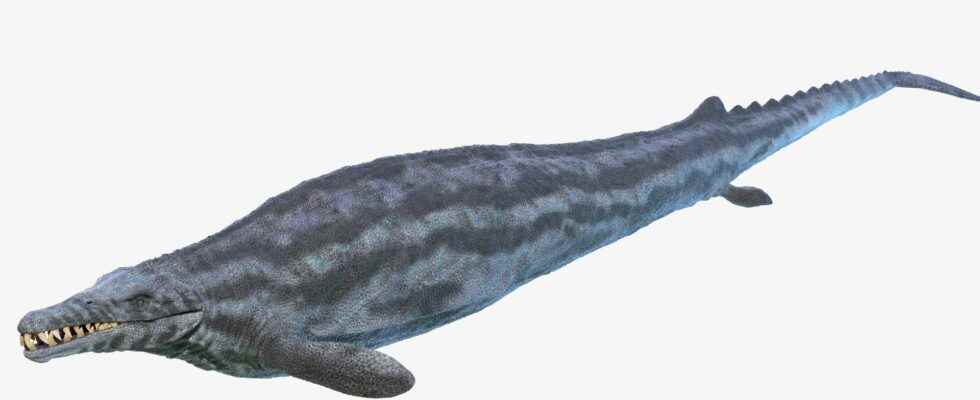A complete basilosaurus skull has been found in a Peruvian desert. The fossil, more than a meter long, still bears the complete teeth of this sea monster and could help describe a new species.
You will also be interested
[EN VIDÉO] Interview: How are dinosaur fossils formed? Fossils are the only remains of dinosaurs to have survived to our time. It is from these remains that scientists can hope to understand these ancient animals. Futura-Sciences interviewed Éric Buffetaut, paleontologist, to find out more about their training.
The current whales are far from resembling the species which are at the origin of the group of cetaceans. These mammals had indeed terrestrial ancestors who began to conquer the marine environment about 50 million years ago. The ancient aquatic forms of cetaceans also include giant and carnivorous species whose behavior probably allowed them to be among the greatest marine predators of their time. Some of these species are classified within the basilosaurids, some specimens of which could reach 20 meters in length and weigh nearly 60 tons. These marine predators are known thanks to the discovery of skeletal elements but so far no skull complete had been described.
A new species of “sea monster”?
the fossila complete skull of basilosaurushas been discovered in the desert from Ocucaje in Peru at the end of 2021. This 1.35 meter long skull is now on display at the Lima museum.
The specimen was found in a deposit dating back 36 million years, which corresponds to the end of the Eocene, in an area that was at the time a shallow sea. It had to be at least 12 meters long. The presence of complete teeth, the entire skull and mandible also allows the paleontologists who study the “predator of Ocucaje” say that it is unlike any other in the world and that it could be a new species. Based on examination of its skull as well as data from other basilosaurus, this “sea monster” must have been at the top of the food web and fed on marine mammals and sharks in particular.
Interested in what you just read?
